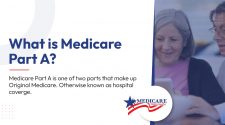Are you a health care worker on strike? We want to hear about your experience. Contact the World Socialist Web Site Health Care Worker Newsletter today.
The strike of more than 300 nurses, respiratory therapists and radiology technicians at Saint Michael’s Medical Center in Newark, New Jersey, has entered its third week. Workers are fighting a courageous battle against inadequate pay, understaffing, the lack of personal protective equipment (PPE) and poor health care benefits.
These are the same fundamental issues that health care workers around the world are fighting. In northwest Germany, nurses have launched a region-wide, four-week strike. In the US, EMS workers in New York City, nurses in Buffalo, New York, Michigan, California and Minnesota are engaged in similar battles.
At stake in the struggle of health care workers at Saint Michael’s is much more than better working and living conditions; workers are up against a profit-driven health care system that has contributed to mass death and disease during the pandemic.
For the past two and a half years, health care workers have seen firsthand the failure of the ruling class to control the spread of SARS-CoV-2. They have witnessed the preventable deaths of more than a million Americans, including hundreds of their colleagues. Understaffing, overwork and insufficient supplies of PPE have contributed to the high death rates and to the enormous physical and psychological toll that the pandemic has taken on health care workers.
Recently, the profession has been shaken by a disturbing series of suicides among health care workers. A staggering 90 percent of nurses are thinking of leaving the profession because of burnout, stress and other health concerns, according to a March 24 report in Healthcare IT News.
New Jersey, which is led by Democratic Governor Phil Murphy, a multimillionaire and former Goldman Sachs executive, is among the states that have been hardest hit by the pandemic. New Jersey’s official COVID death toll is 33,760. The state has the seventh-highest number of pandemic-related deaths per capita in the country, according to Worldometer. An estimated 600,000 people—out of a population of 8.9 million—now suffer from long COVID. These deaths and illnesses are a direct result of the Democratic Party’s conscious subordination of public health to the profit interests of the banks and corporations.
Saint Michael’s Medical Center embodies this criminal subordination of health care to private profit. The hospital is owned by Prime Healthcare, which employs 50,000 workers nationwide. Its CEO, Prem Reddy, is a multimillionaire, and the median pay of its executives is over $200,000 per year.
The company and Reddy had to pay $37.5 million to the US Department of Justice in 2021 to resolve allegations that it paid kickbacks to a cardiologist in exchange for patient referrals. In 2018, the company paid $65 million over allegations that it knowingly submitted false claims to Medicare.
Despite its history of overbilling Medicare, the Ontario, California-based hospital system was still handed almost $600 million in COVID relief grants and loans from the US Department of Health and Human Services.
Now, Prime is trying to enforce austerity on the workers of Saint Michael’s Medical Center. Its proposed 2 percent annual raise in a three-year contract would represent a huge cut in real wages as inflation hovers above 8 percent. Prime also wants to eliminate “step” pay increments, which are seniority-based raises paid in addition to the contractual raises. Moreover, the company seeks to repeal a prohibition on “floating” so that nurses can be assigned to any unit of the hospital, including those in which they have no experience working. The company’s entire proposal is aimed at maximizing profits by keeping the hospital understaffed and workers underpaid no matter what the cost to patient safety.
The AFL-CIO-affiliated Jersey Nurses Economic Security Organization (JNESO), of which the striking Newark workers are members, offers no strategy for a serious fight. JNESO is calling for 6 percent annual raises during the three-year contract—terms that fail to keep pace with inflation and would represent a significant cut in workers’ real wages.
Moreover, JNESO has consciously kept the striking workers isolated. It has not appealed to other workers in Newark, one of the poorest big cities in the country, or anywhere else to join and support this strike. The striking workers at Saint Michael’s are not even receiving strike pay from JNESO or the larger nursing unions and state AFL-CIO.
If left in the hands of the JNESO, the struggle of the Saint Michael’s workers cannot succeed. The trade unions have time and again proven that they will subordinate the needs of their own members in order to protect the profit interests of the employers.
Last month, the Service Employees International Union–United Healthcare Workers West ended a weeklong strike at Cedars-Sinai Medical Center in Los Angeles by imposing a concessionary contract that does not reduce nurses’ workloads or include raises that keep pace with inflation. Last week, the Minnesota Nurses Association blocked a strike by 15,000 nurses and instead is telling health care workers to beg the Democrats to pass safe staffing legislation. But hospitals regularly sidestep such impotent measures, which are just as useless as the countless labor-management “staffing committees” that always come down on the side of management.
Health care workers can draw important lessons from the struggle to defend former Tennessee nurse RaDonda Vaught, who was scapegoated by Vanderbilt University Medical Center for a medical error caused by unsafe staffing and other cost-cutting measures.
Tens of thousands of rank-and-file nurses rallied to defend Vaught, who was charged with criminally negligent homicide. This large-scale mobilization, organized by rank-and-file nurses on their own, based on the slogan “We are all RaDonda,” was the chief factor in the judge’s decision not to sentence the former nurse to jail time. In contrast, none of the health care unions lifted a finger to defend Vaught.
The movement in defense of Vaught and the growing number of job actions by health care workers show that the striking workers in Newark have powerful allies in the United States and internationally. Linking these struggles and leading them to victory will require new organizations and a new strategy to fight.
At a recent online meeting organized by the World Socialist Web Site Health Care Workers Newsletter, health care workers from across the country founded a steering committee to build rank-and-file committees at every hospital and workplace. Through these committees—which are independent from the unions and the Democratic and Republican Parties—health care workers will be able to fight successfully against victimization and for better staffing, higher pay and safer working conditions.
The struggle to win these demands cannot be conducted hospital by hospital or state by state. It cannot be conducted through negotiations and appeals to the powers that be, which base their policies not on science and the social rights of workers, but on the generation of profit for the super-rich. Health care workers must fight for a radical reallocation of resources away from war and endless bailouts of Wall Street and to health care, education and other vital necessities.
In the final analysis, what is required is a political struggle by the working class, independent of both parties of the ruling class, against the capitalist system and the subordination of human life to private profit. This includes taking profit out of medicine and establishing a socialist health care system to guarantee high-quality care for all.
Fill out the form below to learn more about how to build a rank-and-file committee.

Find out more about joining a rank-and-file committee
We are building a network of rank-and-file committees of workers in key industries and workplaces to stop the spread of COVID-19 and save lives, and prepare for a political general strike.




















